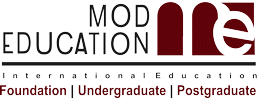Close your eyes and picture yourself exploring charming European villages, speaking with ease in a language you’ve always wanted to learn, or leading cutting-edge research in busy urban areas. Sounds alluring? Indeed, it does!
With a world of options at your fingertips, choosing the perfect study abroad program can feel a bit like picking your favorite flavor at an ice cream parlor – overwhelming yet oh-so-exciting!
If you’re looking for a study abroad program that will fulfill your desire for cultural immersion, academic enrichment, or just a once-in-a-lifetime experience, then grab on as we reveal the insider knowledge, strategies, and tips that will help you make the right choice.
So, grab a pen, grab a map, and get ready to journey through the perceptions, strategies, and information on the right study abroad program.
Understanding Your Goals and Objectives
When choosing a study abroad program, it is important to start by understanding your goals and objectives. Consider what you hope to achieve academically and personally during your time abroad.
Are you looking to improve your language skills, immerse yourself in a different culture, or gain international work experience? By clarifying your goals, you can narrow down the program options that align with your aspirations.
Additionally, think about the length of the program that best suits your needs. Are you looking for a short-term summer program or a full academic year abroad? This will help you make informed decisions throughout the selection process.
Researching Different Program Options
Once you have a clear understanding of your goals and objectives, it’s time to research different study abroad program options. Start by exploring the programs offered by your university or college.
They may have partnerships with universities around the world that offer specific study abroad opportunities.
In addition to your institution’s offerings, there are many third-party organizations that specialize in study abroad programs. These organizations can provide a wide range of options in terms of location, academic focus, and program duration.
Take the time to review program brochures, websites, and testimonials to gather as much information as possible.
Consider factors such as the reputation of the program, the courses offered, and the support services provided to students.
Look for programs that have a strong academic reputation and offer courses that align with your academic interests. It’s also important to ensure that the program provides the necessary support services, such as housing assistance, cultural orientation, and on-site staff.
Considering Location and Its Culture
Location and culture play a significant role in the study abroad experience. Considering the location and its cultural aspects, do you prefer a bustling city or a more rural setting? Are you interested in a specific country or region?
Think about your personal preferences and what you hope to gain from immersing yourself in a different culture.
Research the local customs, traditions, and language of the location you are considering. Familiarize yourself with the climate, transportation options, and safety considerations. Understanding the cultural context will help you prepare for your time abroad and make the most of your experience.
Evaluating Program Costs and Financial Aid
Study abroad programs can vary significantly in terms of cost, so it’s essential to have a clear understanding of the expenses involved.
Consider the program fees, tuition, accommodation, meals, transportation, and other associated costs. Also, factor in additional expenses such as visa fees, travel insurance, and personal expenses.
Create a budget to ensure that you can afford the program and cover all necessary expenses.
Use this link to read more on our budgeting and financial planning blog: https://modeducation.info/studying-abroad-on-a-budget-practical-tips-for-financial-planning/
Explore financial aid options that may be available to support your study abroad journey. Contact your university’s financial aid office to inquire about scholarships, grants, and loans specifically for study abroad programs.
Additionally, research external scholarship opportunities that are open to students studying abroad.
Seeking Out Reviews and Testimonials
For the final phase, reading about the experiences of others can provide valuable insights and help you gauge the program’s quality and suitability for your goals.
Look for reviews on program websites, forums, and social media platforms. Reach out to alumni or current students who have participated in the program and ask them about their experiences.
Consider their feedback on the academic rigor, cultural immersion opportunities, support services, and overall satisfaction with the program.
While reviews and testimonials are subjective, they can provide a valuable perspective that complements your own research.
Use this information to make a well-informed decision and choose the study abroad program that best aligns with your goals and expectations.
And there you have it, the final chapter of How to choose the Right Study Abroad Program.
So, dare to dream big, dare to step outside your comfort zone, and dare to embark on a positive journey. With the knowledge gleaned from this guide, coupled with your own passion and curiosity, there’s no limit to what you can achieve.
Remember: Your study abroad journey is just the beginning, and lots of experiences await.
Be it engineering, medicine, law, or IT, ensure to pick your preferences based on geography, program costs, financial aid, cultural aspects and most importantly, your research.
Picking the right study program must be equivalent to the host country’s benefits and how the course can be beneficial to you in that country.

For more guidance and how to apply, do send us a message on our social media pages (Instagram, Facebook, and Twitter).

